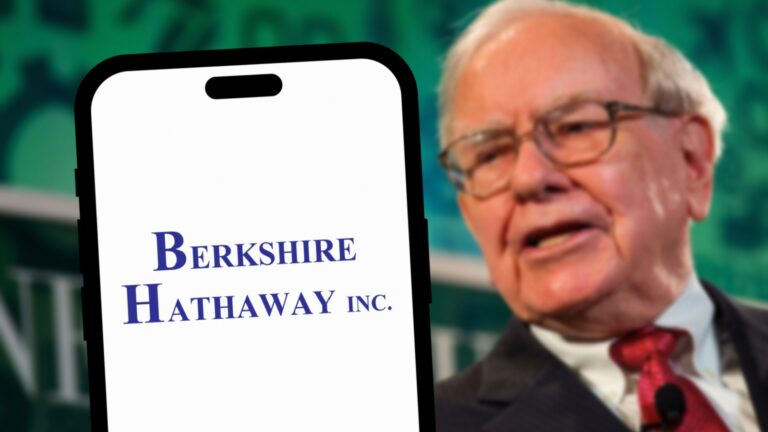It’s been nearly two weeks since Warren Buffett presided over his company’s annual shareholder meeting in Omaha. The ritual has become a must-attend for those in the industry and Berkshire Hathaway (NYSE:BRK.B) shareholders. There’s no question Berkshire Hathaway stock remains very attractive for long-term investors.
The media’s gone over many of the highlights, so I won’t delve into the events of that weekend in Nebraska. It sounded, as always, like a lot of fun. The biggest downer: Charlie Munger wasn’t there to throw out the usual zingers he’s become known for. Munger will be remembered for years to come.
I’ve always felt that Berkshire is the ultimate mutual fund. This is because it charges no fees, provides healthy long-term returns, and protects against the downside. You will find that this is unlike few stocks in the United States.
If you could only own one stock, besides the SPDR S&P 500 ETF Trust (NYSEARCA:SPY), which Buffett recommends most investors buy, it would be Berkshire Hathaway.
Drawing from the company’s Q1 2024 results, here are three reasons.
It’s a Team Game with Berkshire Hathaway Stock

The one thing I love about Berkshire is that it’s like a sports team in that there’s always somebody performing well to drag the rest of the team along, even when they don’t want to. They all sink or swim together.
In the latest quarter, its operating earnings were $11.2 billion, 4o% higher than a year earlier. That’s the figure to look at when studying the company’s quarterly and annual reports.
If you use net earnings, you’ll get wild swings in the results due to investment gains and losses (realized and unrealized) that must be reported each quarter. In Q1 2024, its net earnings were $12.70 billion, 64% lower than a year ago.
There are seven items that make up operating earnings. In the first quarter, BNSF, the company’s railroad business, had operating earnings that were 8.3% lower than a year earlier. The only other item with a decrease was its investments in companies where it doesn’t control a majority, owning between 20% and 50%. Those earnings were almost 29% lower year-over-year.
The good news is these two businesses only accounted for less than 14% of its operating earnings.
There will come a day when both of these businesses outperform their five other stablemates, likely when they are most needed to keep overall earnings growing.
Buffett Sold Apple for a Couple of Reasons

Berkshire’s Q1 2024 results showed that the company cut its stake in Apple (NASDAQ:AAPL) by about 13% in the first quarter to 790 million shares. While that’s a significant reduction, it still leaves the company with shares accounting for 40.2% of its $367 million equity portfolio. That’s four times its next largest holding — Bank of America (NYSE:BAC) at 10.9%.
The first reason sold some of its Apple stock was to get more cash. With interest rates still high and stocks overvalued — Apple trades at 28x earnings compared to a multiple between 12 and 20 times earnings when Berkshire acquired most of its AAPL stock — the interest it earns on its $189 billion cash pile is a real incentive to lock-in some gains on its Apple stock.
Who knows? He might buy some more if it drops in the future. However, Berkshire shareholders ought to be happy that he’s lowered the overweight weight Apple has on the entire company’s assets.
Diversification when you’ve got a great team is not a bad thing.
Buffett’s Getting a Faster Trigger Finger

How many years did it take the company to jump off the Wells Fargo (NYSE:WFC) bandwagon after it became patently clear that the bank had a broken business model that it is just now getting over the scandals that plagued the company.
In February, the Office of the Controller of the Currency (OCC) terminated its consent order, first implemented in September 2016, that forced the company to clean up its act over its sales practices.
“Confirmation from the OCC that we have effectively implemented what was required is a result of the hard work of so many of our employees, and I’d like to thank everyone at Wells Fargo involved for their dedication to transforming how we do business,” stated CEO Peter Scharf in a prepared statement.
Berkshire sold off the last of WFC shares in Q1 2022, six years after the OCC’s consent orcder went into effect. That’s a long time to stand by a company.
In the case of Paramount Global (NASDAQ:PARA), he had no such patience. He said at the annual meeting that he alone decided to sell its entire stake in the troubled firm, crystallizing a significant capital loss for the company.
On the one hand, it’s never good to take a loss. On the other hand, it has significant unrealized gains on its equity portfolio — $232.1 billion at the end of March — to offset these gains.
We don’t know if Buffett was behind the buy but he had no problem taking responsibility for the sale. That’s what you want in an investment manager. The ability to move on when you’ve made a mistake.
On the date of publication, Will Ashworth did not have (either directly or indirectly) any positions in the securities mentioned in this article. The opinions expressed in this article are those of the writer, subject to the InvestorPlace.com Publishing Guidelines.
